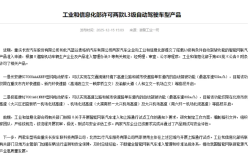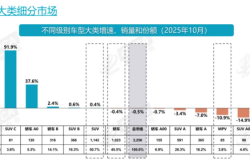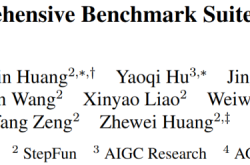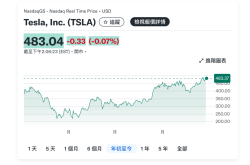Bidding War for Data Center Business Hits 30 Billion Yuan! ByteDance's "Computing Power Titan" in High Demand
![]() 09/02 2025
09/02 2025
![]() 433
433
The thirst for computing power in AI continues unabated.
Qinhuai Data Center, ByteDance's computing power supplier, has had its China business listed for sale by its controlling shareholder, Bain Capital.
The first round of bidding has concluded, valuing the business at approximately 30 billion yuan.
Currently, five companies—Runze Technology, Shanghai Instrument and Electronics, Dongyangguang, Youzu Networks, and Beijing Capital Group—are engaged in the final showdown of "highest bidder wins".
Why is Qinhuai Data Center so sought-after?
Qinhuai Data Center's popularity stems from two key factors. First, it possesses scarce physical assets and energy consumption quotas.
Qinhuai Data Center operates 11 ultra-large data centers in China with a total IT load of 650 megawatts. Its core assets are concentrated in the Beijing-Tianjin-Hebei region and the Yangtze River Delta, and it holds over 20 energy consumption quotas.
The second reason is its tie-up with ByteDance as a "super customer." Prospectus data shows that from 2020 to 2022, Qinhuai Data Center's revenue from ByteDance exceeded 80% for three consecutive years.
This means that a successful acquisition of Qinhuai Data Center would not only provide a company with ready-made, high-quality data center assets but also directly inherit ByteDance as a stable major customer, quickly securing continuous revenue streams. This has become a significant advantage in the bidding process.
Amid the simultaneous explosion of "dual control of energy consumption" policies and large AI models, the black market price of these approvals has soared to 50 million yuan each. The dual certainty of "assets + customers" has emerged as the key driver behind the capital competition.
30 Billion Yuan Offer First! Five Buyers in Fierce Competition
According to industry sources, this bidding war has reached a fever pitch.
Runze Technology made the first move, directly submitting a binding offer of 30 billion yuan with a clear objective: to acquire Qinhuai Data Center's core assets. Notably, Runze has transitioned from traditional fields to data center operations, with a market value exceeding 100 billion yuan. This acquisition aims to further expand its footprint in North and East China, solidifying its industry position.
Close behind are four other bidders, each with their own strategies:
Shanghai Instrument and Electronics, with a local state-owned background and access to low-interest funds, is less concerned with valuation and focuses more on the long-term strategic value of data centers and its ability to integrate regional resources.
As a leading electronic component manufacturer, Guangdong Dongyangguang has historically lacked an "AI + heavy asset" business label. It aims to use this acquisition to enter the computing power race, address business shortcomings, and restructure its valuation logic.
Youzu Networks is eager to "break the deadlock"—its traditional game business growth is sluggish, and it urgently needs to rely on computing power assets to venture into new territories and find a new anchor for its performance and valuation.
Then there's Beijing Capital Group, with a Beijing state-owned background and expertise in infrastructure mergers and acquisitions. Coupled with Beijing's political and commercial resources, acquiring Qinhuai Data Center would enable it to form a strong synergy with its assets in the Beijing-Tianjin-Hebei region.
Original Shareholder Bain Capital, Quick Entry and Exit
Qinhuai Data Center's current controlling shareholder is the international investment institution Bain Capital. Bain Capital's exit strategy can be described as meticulous.
In March 2023, Bain Capital completed the privatization of Qinhuai Data Center for $3.2 billion and initiated the asset sale plan just over a year later.
If this transaction closes at 30 billion yuan, Bain Capital will not only recoup all the costs of the initial privatization but also retain Qinhuai Data Center's overseas assets.
This "recover the principal + retain overseas assets" strategy not only realizes a high-return cash-out but also mitigates potential geopolitical risks. It exemplifies capital operation that "attacks when advancing and defends when retreating".
Behind the Event: The Competition for Computing Power Heats Up
The intense competition for Qinhuai Data Center's China business underscores that the domestic race for computing power has reached a boiling point.
Globally, Meta announced this year that it will invest an additional $14.3 billion to expand its AI data centers, while Amazon and Microsoft are also ramping up their investments.
In China, the approval of energy consumption quotas is becoming increasingly stringent, making the construction of new data centers more challenging. Existing IDCs (Internet Data Centers) have transformed into scarce resources akin to "digital real estate." Whoever secures more racks will hold the "money printer" of the AI era.
Currently, the results of the Qinhuai Data Center bidding have not been announced. However, it is certain that with the ongoing development of industries such as large AI models, autonomous driving, and the industrial Internet, the demand for computing power will continue to surge. The competition for data centers, energy consumption quotas, and core computing power providers will persist for the foreseeable future.








